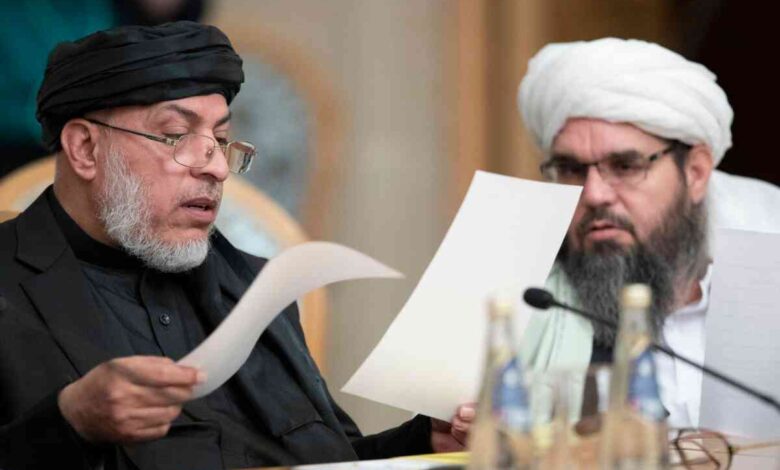Taliban in Doha Peace Is Between Veil of Victory and Defeat

Taliban in Doha Peace Is Between Veil of Victory and Defeat
Finally, the US-Taliban negotiating body signed a peace deal in Doha, Qatar, after six months of talks. According to Peace Agreement articles, US withdraws troops from Afghanistan within 14 months and Taliban will enter to inter Afghan Talks after releasing 5000 of their members from governmental prisons. With the signing of the peace agreement, there was a partial war crisis in Afghanistan to the management of that the electoral crisis stalled and prevented the continuation of the war crisis. Initially, the Taliban repulsed the decline in violence and organized the bloodiest attacks on governmental forces. The United States, the European Union, NATO and some political entities inside Afghanistan have criticized the Taliban’s performance, and the US has also warned of a possible return of its troops to the Taliban in a US air strike on the Nahr -e- Seraj District of Helmand Province. There were casualties. However, the crisis of war, instead of moving forward to management, it went to defeat and remained half then it closed.
The electoral crisis followed its ascend position, and two privileged delegations of the governmental election held on the swear. US envoys’ efforts for Afghan peace did not work out, and both claimed victory that same day. They had a loyalty swear that before of that the prisoners should be released and inter Afghan negotiations must be began.
The government-building team emphasizes the high status of the republic and identifies the government as a heavyweight in the peace talks between Afghans and speaks for the position of the existing government, but the other side emphasizes the Taliban’s involvement in a participatory government. It is the Taliban are even more keen on negotiating with provisional government-centered parties, which could ultimately cause damage and damage to the system’s weakening and sustained gains of nearly two decades.
But the government is trying to negotiate with the Taliban by preserving republicanism and insisting on safeguarding national interests and the whole system, but not if the group dreams of returning to the recent developments of the 1990s.
The Americans, who demanded the government’s release of 5,000 Taliban prisoners, said their release was conditional on the Taliban’s expulsion from Pakistan and cessation of drug trafficking activities.
However, both the inauguration was held in this area and the Americans failed to prevent the subsequent electoral stalemate and subsequent election crisis from escalating.
But the leadership of the government inaugurated a conditional release, that the Taliban responded that conditional release was not part of their peace deal with the United States. The release of these prisoners is now tied to the fate of the US-Taliban peace deal. The Taliban have warned that if their members are not released, they will back out of a peace deal with the United States.
Whether the United States will succeed in managing this war or not. This package has the flexibility of the government and the Taliban, the government some of its demands, giving the US the Taliban and the government a say, and prescribing an effective version of the US-led electoral crisis.




